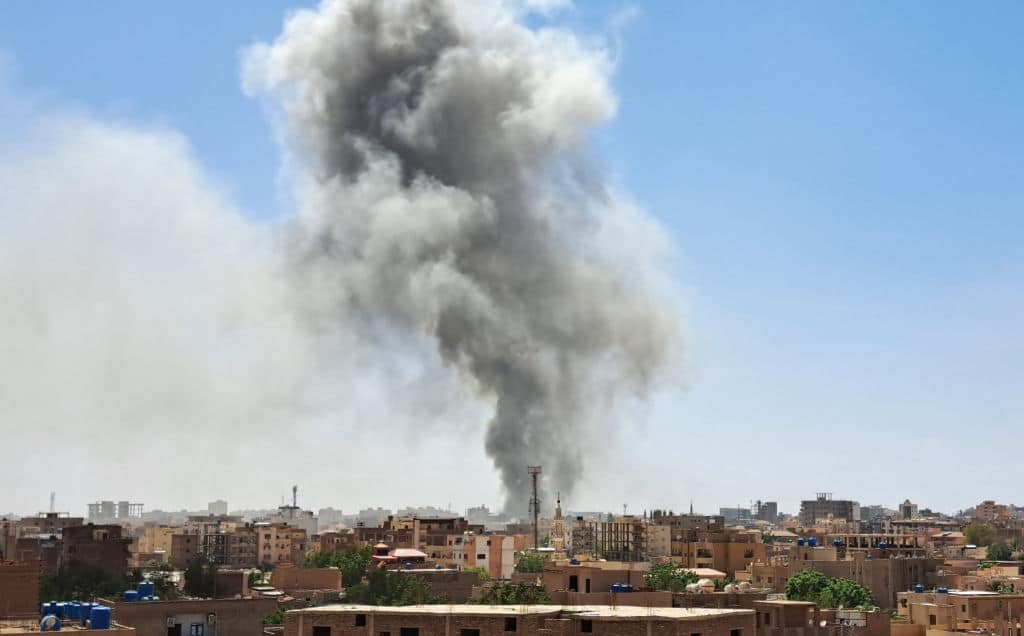The humanitarian crisis in Sudan is worsening by the day and within the first month of violence, erupting on April 15, at least 700 people have been killed…and counting. Those fighting vow to do so until death–or at least until they’re exhausted or one of the sides has a military breakthrough.
Pitted against each other are the Sudanese Armed Forces (SAF), led by Lieutenant General Abdel Fattah al-Burhan, and the Rapid Support Forces (RSF), controlled by Mohamed Hamdan ‘Hemedti’ Dagalo. In their fight to control the country, the two generals are seemingly committed to destroying each other which is why observers don’t foresee an end to the conflict any time soon.
Sudan was one of the first African countries to gain independence from British rule after World War II, but its governance has always been compromised and is reflected in the country’s numerous civil wars. The latest violence can be traced directly back to the ousting of former military officer and head of state, Omar Hassan Ahmad al-Bashir, in 2019, that was coordinated by the RSF and the SAF. But a power-sharing deal between the generals soon turned into a deadly power struggle.
RSF is a proxy militia that was historically used against the people of Sudan in marginalized regions. They’ve reportedly been found guilty of mass killings and rapes, pillage, torture, and the destruction of villages. Its key leaders have been indicted by the International Criminal Court of genocide, war crimes, and crimes against humanity.
Since the start of the current conflict, a variety of voices with different motives and backgrounds have called for the continuation of the war, in the belief that this will eliminate the RSF once and for all. In the eyes of many members of Bashir’s former regime, the RSF represents the main obstacle preventing them from re-seizing power.
Loading...
Peace talks in Jeddah, Saudi Arabia, have so far failed to end the violence. Brokered by Riyadh and Washington, thousands of foreign nationals have been ferried out of the country. Sudanese journalist Mohamed Amen is following the talks and says: “Recent strides towards a ceasefire open the passage for relief aid in many parts of Sudan, especially Darfur…Amid all these tensions, people are still fleeing the capital Khartoum and other parts of the country. The humanitarian situation in Khartoum continues to deteriorate because of the fighting that is still continuing. The lack of food, the cutting off of water and electricity, and the shortage of fuel and other basic needs are mainly caused by the two sides not honoring the various ceasefires that were previously put in place.”
The humanitarian situation is nothing short of catastrophic. The conflict has driven many to seek refuge in neighboring countries. Hospitals are under pressure. Many are without water and electricity and have been vandalized. Health practitioners’ and patients’ lives are also in danger and Sudanese doctors are warning of a healthcare crisis. A call for humanitarian aid has so far delivered too little to salvage the situation.
The war has also left many jobless and exacerbated an already deflated economy.
Homes have been destroyed, families torn apart and many civilians have looted shops in a desperate effort to get some food.
Sadly, the instability is also creating new opportunities for armed groups and there are reports of them taking over laboratories for infectious diseases. Former staff are worried there might be a bio-risk if they open and sabotage fridges.
Sudanese civil wars are rooted in the historical context of the country, with the first one breaking out in 1955 to 1972.Until today, the second Sudanese civil war (1983-2005) remains one of the longest civil wars to ever erupt in Africa. Although it led to South Sudan eventually gaining independence from Khartoum, it left poverty and dependency on foreign aid in its wake. The latest conflict only exacerbates the situation, with infrastructure now even more dilapidated, poverty even worse and Sudanese people in greater despair.
Loading...
